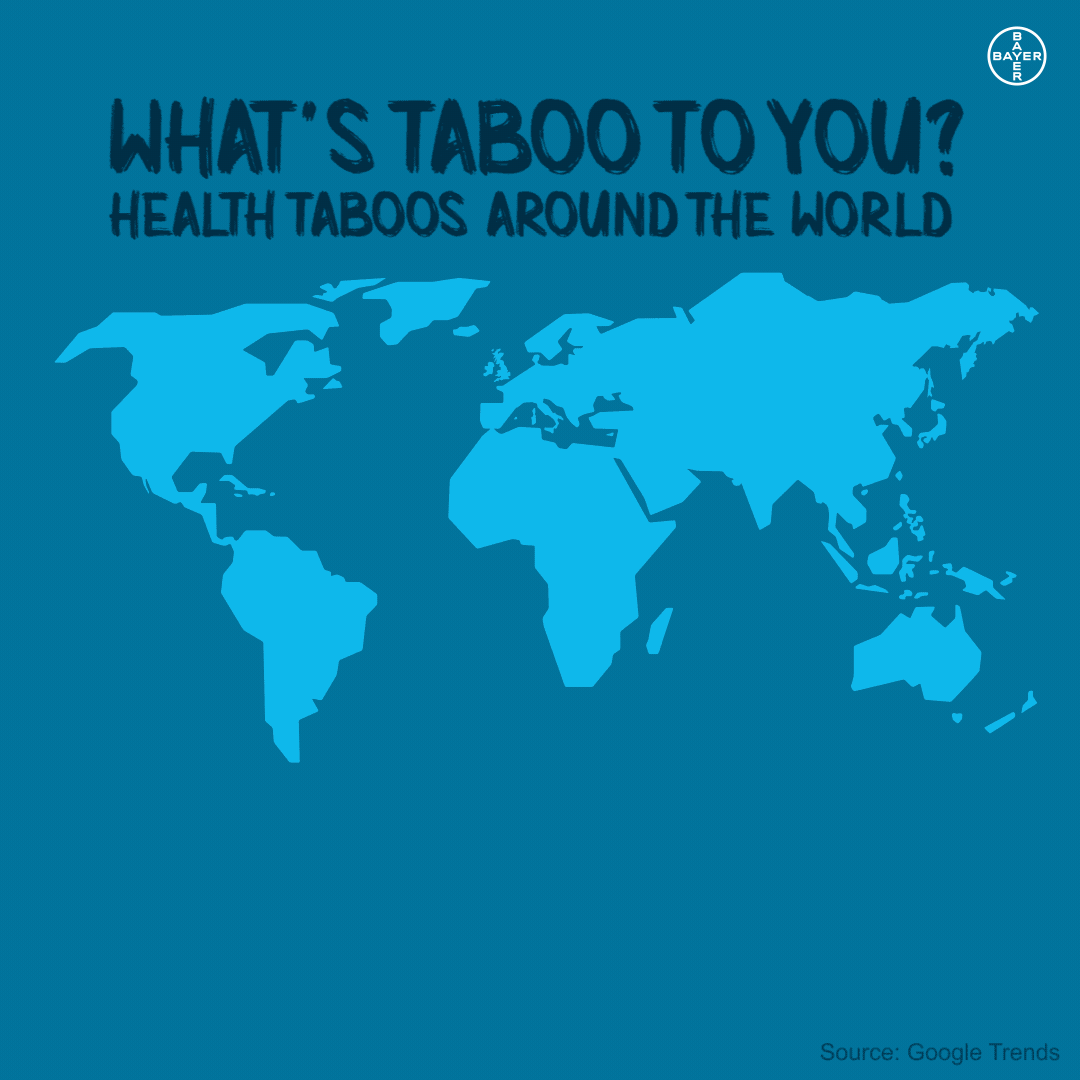Human Health Should Never Be Taboo

It’s easy to brush off some topics just because they’re uncomfortable. But what if the first step toward a healthier life was having the conversation?
What does taboo mean?
When was the last time you talked to your best friend about constipation? Or when was the last time you had a conversation about bacterial vaginosis? When it comes to our health, there are some things we just don’t talk about. Because they’re “uncomfortable” or “private,” we dub them taboo.
Here’s the problem: talking about taboos is often the first step to treating them. In a time when taking care of yourself is so important, we need to free our health conversations from the burden of social insecurities. In short, self-care has no room for self-consciousness.
For example, more than a third of first-time bacterial vaginosis sufferers adopt an ‘embarrassed and self-reliant’ persona, preferring to self-diagnose rather than talk to a healthcare professional. While it might seem more convenient in the moment, keeping quiet about our personal ailments can have negative effects on our health. Ignoring health just because its taboo leaves the afflicted to suffer in silence.
What if the first step to a healthy future was an uncomfortable conversation? Talking about taboos helps doctors make decisions, helps consumers get informed about the solutions available to them, and helps families take care of each other.
Deconstructing Taboos Digitally
In 2018, a study surveyed more than 100,000 people and covering 70 embarrassing health topics.1 It found that the internet is their key source of information when looking into stigmatized health topics. But across those 70 embarrassing topics, the quality and accuracy of information was less than consistent. There is a big gap between what’s written in a chatroom and a doctor’s recommendation. In an increasingly digital world, credible health players have a responsibility to meet consumers with accurate and understandable health information.
More recently, COVID-19 has significantly limited people’s ability to access timely and reliable healthcare services. According to the World Health Organization, 90% of countries experienced disruptions to their health services between March and June 2020, and 58% of countries are now using telemedicine (advice by telephone or online means) to replace in-person consultations.2
As more and more people discover trusted means to manage their health online, digital technologies present another opportunity to take self-care “beyond the pill.” One example: We are developing a digital mobile companion to help women take care of their intimate health, from first symptoms of bacterial vaginosis to diagnosis and treatment, to answering follow-up questions, and beyond. The internet can also make awkward health conversations a little easier by connecting people with a community of peers and with experts — to relate with each other on stigmatized topics or get reliable medical advice.


How Do We Normalize Taboo
In 2018, the Lancet published an article on normalising menstruation, empowering girls.3 While the article was about menstruation, its general themes are applicable to normalization of taboos in health and wellness. We need to talk about taboos at all levels—as consumers, as educators, as policy makers, governments and healthcare professionals. The only way to truly normalise any taboo is through public debate and open conversations.
At Bayer I believe we have a role in this space to engage with as many people as possible, providing solutions that support, educate and resolve the issues.
As an example, it is estimated that 70% of the population will suffer from athlete’s foot at some time.4 People with athlete’s foot often want to avoid touching the infected skin between their toes and sometimes refrain from treating their athlete’s foot because of this. When my team learned about that inhibition, they partnered with a supplier to develop new packaging that allowed consumers to apply our Canesten foot cream without skin contact.
Partnering to Tackle Taboos – and Realize Our Vision
Tackling taboos is a monumental task with a lot of social and cultural headwinds. No one will be able to do it alone. At Bayer, we have a bold vision of Health for all, Hunger for none. Driven by that vision, we recognize that the ailments least spoken about can present the biggest barriers to a healthy life. Our innovation efforts won’t stop when stigma starts.
The same way that an open dialogue about health taboos will drive better outcomes, an open innovation landscape will lead to more daring science around stigmatized topics, more courageous partnerships, and more choice to help consumers transform their everyday health. We want to work with the most innovative, exciting start-ups and tech companies to empower consumers and innovate for a world in which human health is never taboo.
Reach out at partnerwithus@bayer.com
1 Int J Med Inform, 2018 Jun;114:101-105.doi: 10.1016/j.ijmedinf.2018.03.010. Epub 2018 Mar 27.
2 https://www.who.int/news-room/detail/01-06-2020-covid-19-significantly-impacts-health-services-for-noncommunicable-diseases
3 The Lancet Child & Adolescent Health, Published: June, 2018DOI: https://doi.org/10.1016/S2352-4642(18)30143-3
4 https://www.medscape.com/answers/1091684-32195/what-is-the-prevalence-of-tinea-pedis-athlete39s-foot





















